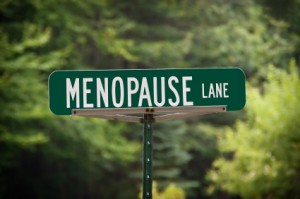
Phytoestrogens: Some plants contain phytoestrogens, which are substances that have estrogen-like effects, though weaker, that may bring relief to those who suffer with the ill effects of menopause. Some may even lower cholesterol. Isoflavones are phytoestrogens found in soy products like tofu, soymilk and soybeans.
Foods High in Isoflavones: (mg in 100g of food)
- Soybeans, green, raw – 151.17
- Soy flour (textured) – 148.61
- Soybeans, dry roasted – 128.35
- Instant soy beverage powder, not reconstituted – 109.51
- Soybean chips – 54.16
- Soybean curd cheese – 28.20
- Soymilk – 9.65
- Tofu, silken – 27.91
- Tofu, yogurt – 16.30
- Miso soup mix – 60.39
Isoflavones are not the only phytoestrogens, however. Other products containing phytoestrogens include:
- Black Cohosh: This has short-term usefulness in treating vaginal dryness, hot flashes, and night sweats. Beyond six months the safety is not known. Rarely some have experienced gastrointestinal upset as a side effect of regular use.
- Evening Primrose Oil: This has been used to treat hot flashes, though there are no studies to back it up. It can cause nausea and diarrhea.
- Flaxseed: This edible seed contains ligans, another class of phytoestrogens. It is thought to decrease hot flashes and may also lower the risk of breast cancer. It is also called linseed. Crushing or grinding the flaxseed makes the ligans digestible, thus making them useable to the body.
- Don quai: This traditional Chinese herb has been used for 2,000 years to treat medical problems, including relieving menopause symptoms. Science says that more research needs to be done to prove its effectiveness and safety.
Vitamins, Minerals, and Nutrients: Many women suffer from increased bone loss during menopause. This increases their risks of developing osteoporosis. Taking nutritional supplements can reduce the loss of bone.
- Calcium: A daily dose of 1500 to 2000 mg taken with 400 mg magnesium and 400 IU Vitamin D is necessary for bone protection.
- Vitamin K and Boron also play a role in good bone health. They are best when obtained from our diet, but supplements are available.
Diet: Eating a heart-healthy diet, rich in fresh fruits and vegetables and low in fat, is the best way to get of these natural treatments to your system. An increased risk of heart disease is also associated with menopause, so this would be a natural way to reduce that risk as well.
Low-fat dairy products are full of calcium and most have vitamin D added to them, which are two nutrients important to good bone health. Eating plenty of whole grains, legumes, and nuts will give you vitamin E, potassium, and magnesium, which are healthful for the bones and the heart. Omega-3 fatty acids are great for a healthy heart as they will reduce cholesterol, decrease inflammation, thin the blood, and reduce plaque growth. These can be found in salmon, tuna, mackerel, sardines, ground flaxseed and flaxseed oil, walnuts, and ground hemp seed or hemp seed oil. Omega-3s should not be taken when one is scheduled for surgery or by those who take blood thinners like Coumadin (Warfarin).
When looking to make dietary changes to help control menopausal symptoms there are some foods that should be avoided. These include food and beverages high in caffeine and carbonated beverages, which contain phosphorous. This can cause bone loss. You should avoid, or at least limit, your intake of commercially raised beef, pork, and chicken due to their high content of saturated fat and the body’s ability to metabolize estrogen. Sugar should also be avoided, because when eaten in excess it will limit the liver’s ability to metabolize estrogen and causes the immune system to be impaired.
Adding more whole grains, brown rice, tofu, almonds, cashews, fresh fruit, and vegetables to your diet will increase your intake of phytoestrogens and other natural vitamins, minerals, and nutrients, which will help reduce your menopausal symptoms.
Before starting any new program to treat your menopausal symptoms, or other maladies, you should discuss these changes to your diet and daily supplements with your healthcare professional.
Good health to you, naturally!
©2011 Off the Grid News